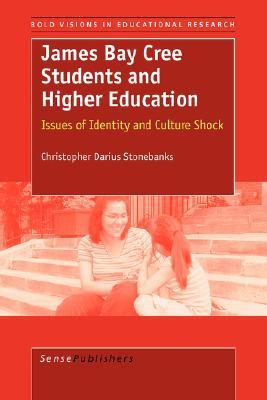
James Bay Cree Students And Higher Education
还没有评分
Romance
格式
精装书
页数
252
语言
荷兰语,佛兰芒语
已发布
Jan 1, 2008
出版商
Sense Publishers
ISBN-10
9087902824
ISBN-13
9789087902827
描述
In a compelling exploration of the educational journey of James Bay Cree students, Christopher D. Stonebanks delves into the intersection of culture and academia. The narrative captures the unique challenges faced by Indigenous learners as they navigate the higher education landscape, illuminating their resilience and determination. Stonebanks draws on personal stories and research, giving voice to students who often grapple with the complexities of pursuing education while staying connected to their cultural roots.
Throughout the work, Stonebanks highlights systemic barriers that impede access to higher education for Indigenous populations, shedding light on calls for institutional reforms. The author underscores the importance of culturally relevant pedagogy and the need for academic environments that honor Indigenous histories and knowledge systems. This focus on culturally affirming education resonates deeply, advocating for inclusivity in policy and practice.
The book serves as a crucial reminder of the significance of representation in higher education, emphasizing that the presence of Indigenous voices enriches academic discourse. Stonebanks' analytical approach not only critiques existing frameworks but also envisions a more equitable future for Cree students and Indigenous communities at large.
Ultimately, this work is a call to action for educators, policymakers, and institutions, urging them to listen to the experiences of Indigenous students. It aims to inspire meaningful change that respects and integrates Indigenous perspectives within higher education.
Throughout the work, Stonebanks highlights systemic barriers that impede access to higher education for Indigenous populations, shedding light on calls for institutional reforms. The author underscores the importance of culturally relevant pedagogy and the need for academic environments that honor Indigenous histories and knowledge systems. This focus on culturally affirming education resonates deeply, advocating for inclusivity in policy and practice.
The book serves as a crucial reminder of the significance of representation in higher education, emphasizing that the presence of Indigenous voices enriches academic discourse. Stonebanks' analytical approach not only critiques existing frameworks but also envisions a more equitable future for Cree students and Indigenous communities at large.
Ultimately, this work is a call to action for educators, policymakers, and institutions, urging them to listen to the experiences of Indigenous students. It aims to inspire meaningful change that respects and integrates Indigenous perspectives within higher education.